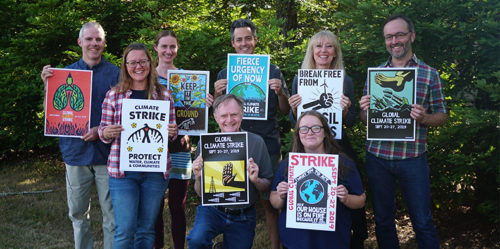A sea change moment?
September 19, 2019

Tomorrow begins Global Climate Strike Week, led by young people to demand urgent action to address the climate emergency. What many hope will be a sea change moment in the struggle to mobilize a real response to this existential threat had a humble start a year ago when a young Swedish student, Greta Thunberg, began spending her Fridays protesting in front of the Swedish Parliament. Inspired by Greta’s example—and her blunt, uncompromising stance—millions of students have since joined her in the “Fridays for the Future” movement. This week is an opportunity for the rest of us to participate.
I will be out on the streets tomorrow and the following Friday in my hometown, and I’ll be joining a number of other activities planned locally over the coming week. PCI is supporting our staff to actively participate in the various communities where they live. We’d like to encourage you to do the same. Visit the Climate Strike website to find activities near you.
I’ll be honest, I’m not much of a protester. But if nothing else, this week presents an opportunity to show younger generations—who will be dealing disproportionately, and unfairly, with the consequences of previous generations’ profligate burning of fossil fuels—that we hear and see them, and support them to take agency.
That said, we will utterly fail them (not to mention future generations and the millions of species who have equal rights to a livable planet) if we simply go back to life-as-usual come October.
This crisis is, quite simply, wicked. As a member of the Post Carbon Institute/resilience.org extended family, you understand that the climate emergency is one of a broader, more complex set of crises that will force an almost unimaginable set of changes to virtually every aspect of modern life — whether we make those changes proactively or are dragged there. This realization can be overwhelming, and the lack of a sufficient response to this emergency can be utterly depressing. But even if hope has to be held lightly in the steely-eyed recognition of what we face, we still must take action. Much of that action comes back to our own backyards.
A few months ago I gave an emotional talk to parents and teens in Corvallis, Oregon, where I live. In that talk I outlined 10 things that parents and other adults can do to support our children. Some of these were specific to Corvallis, but could be applied to your community. I share these with you not because they are the solution, but can perhaps can serve as a resource.
Onward!
